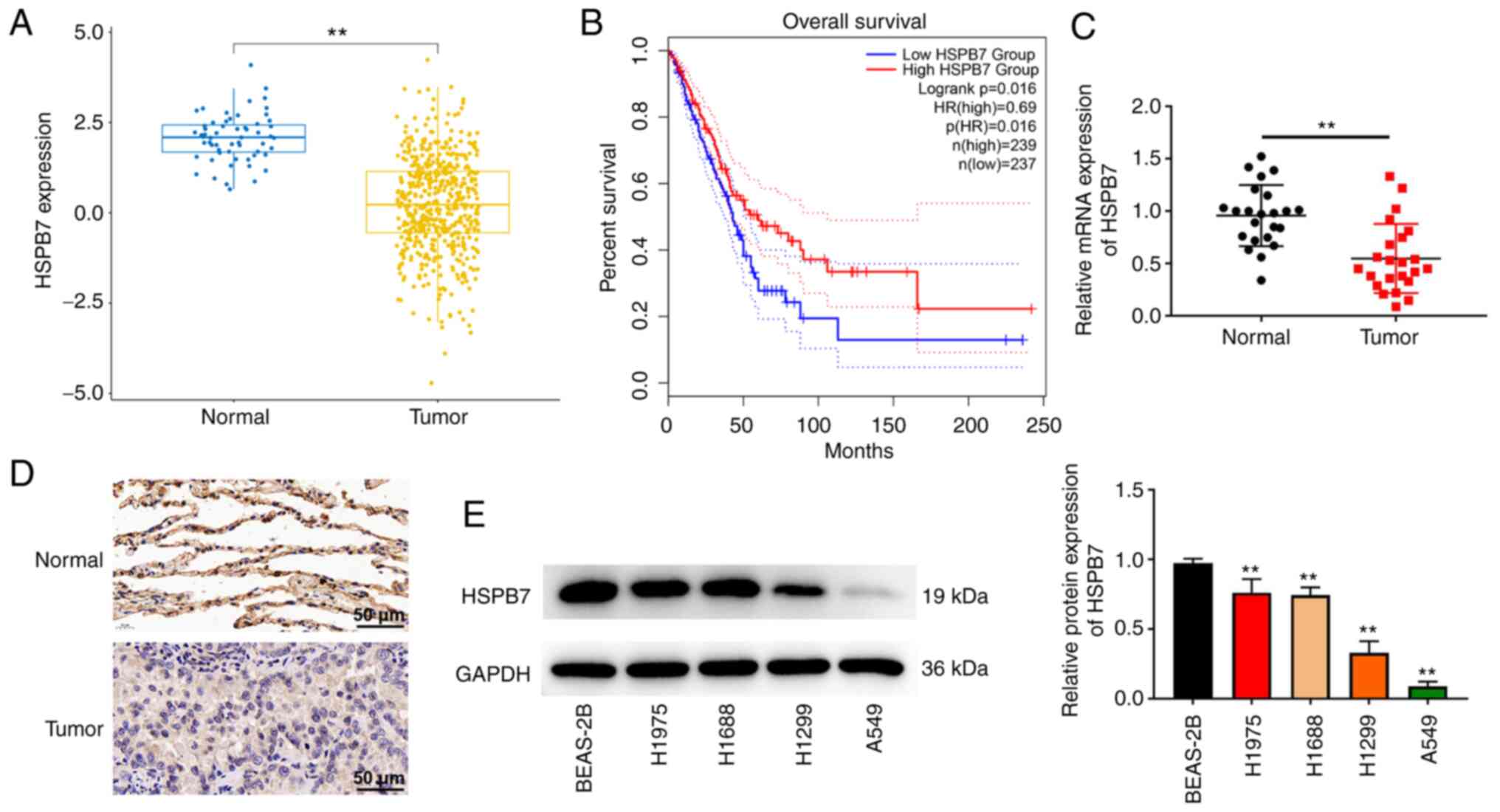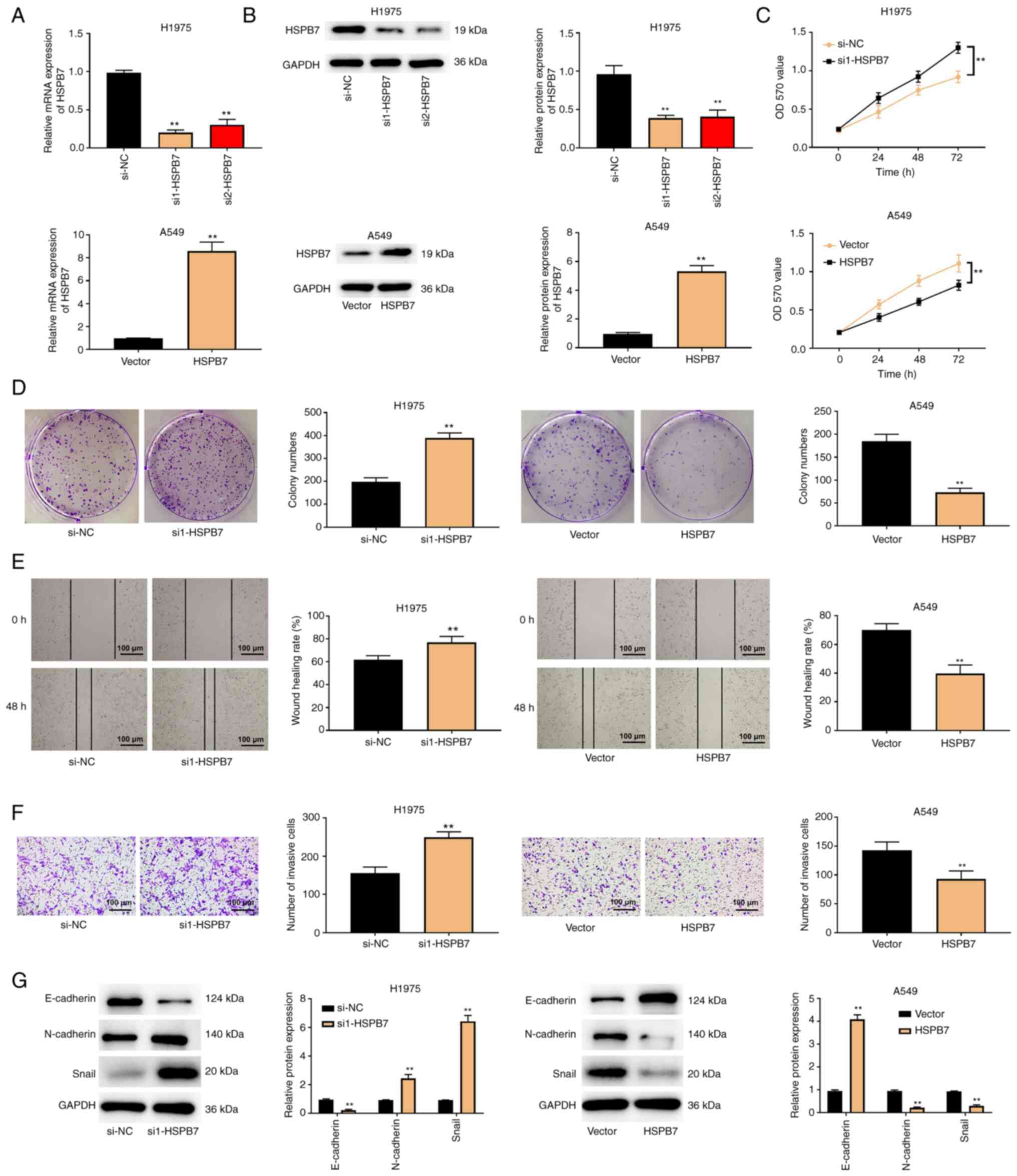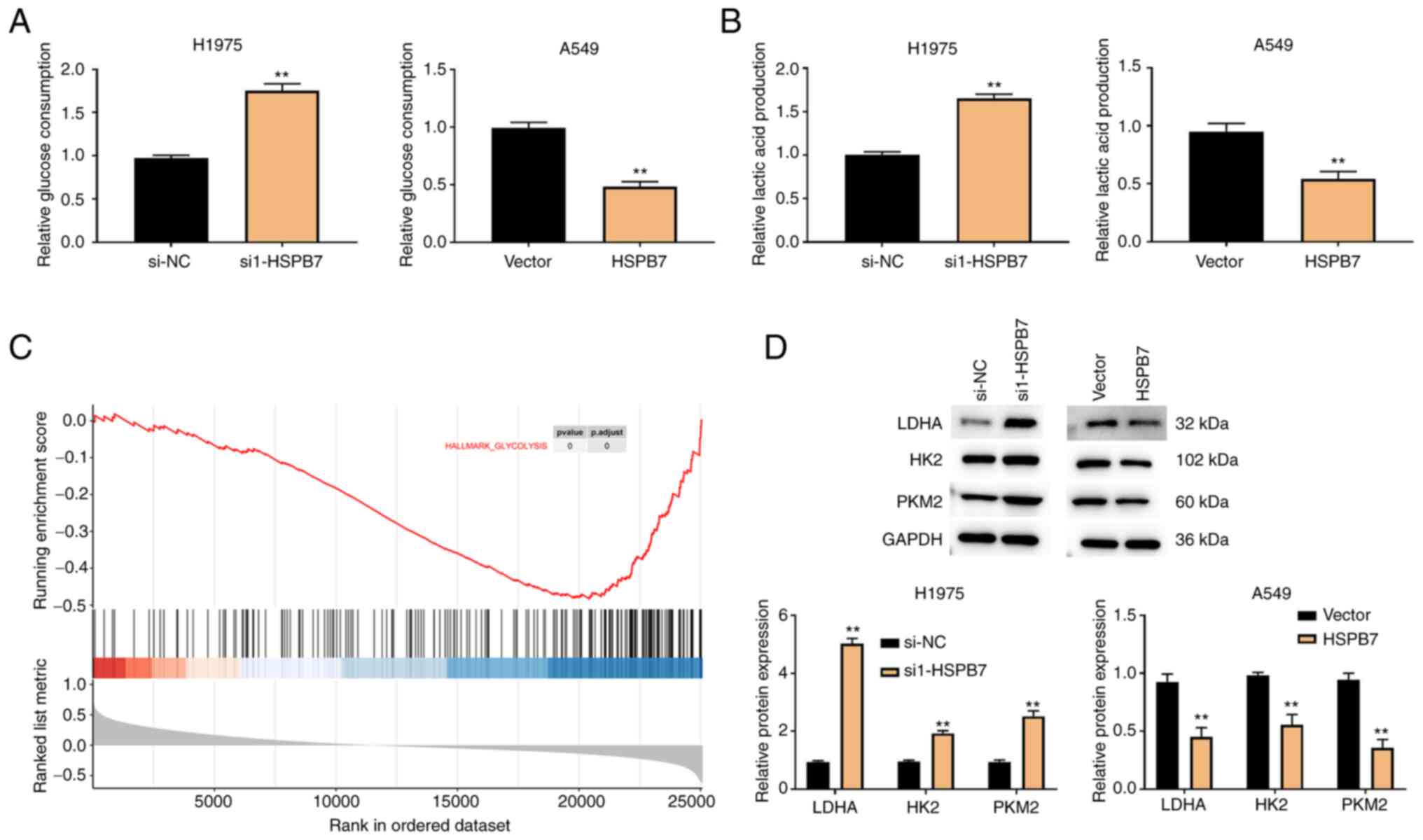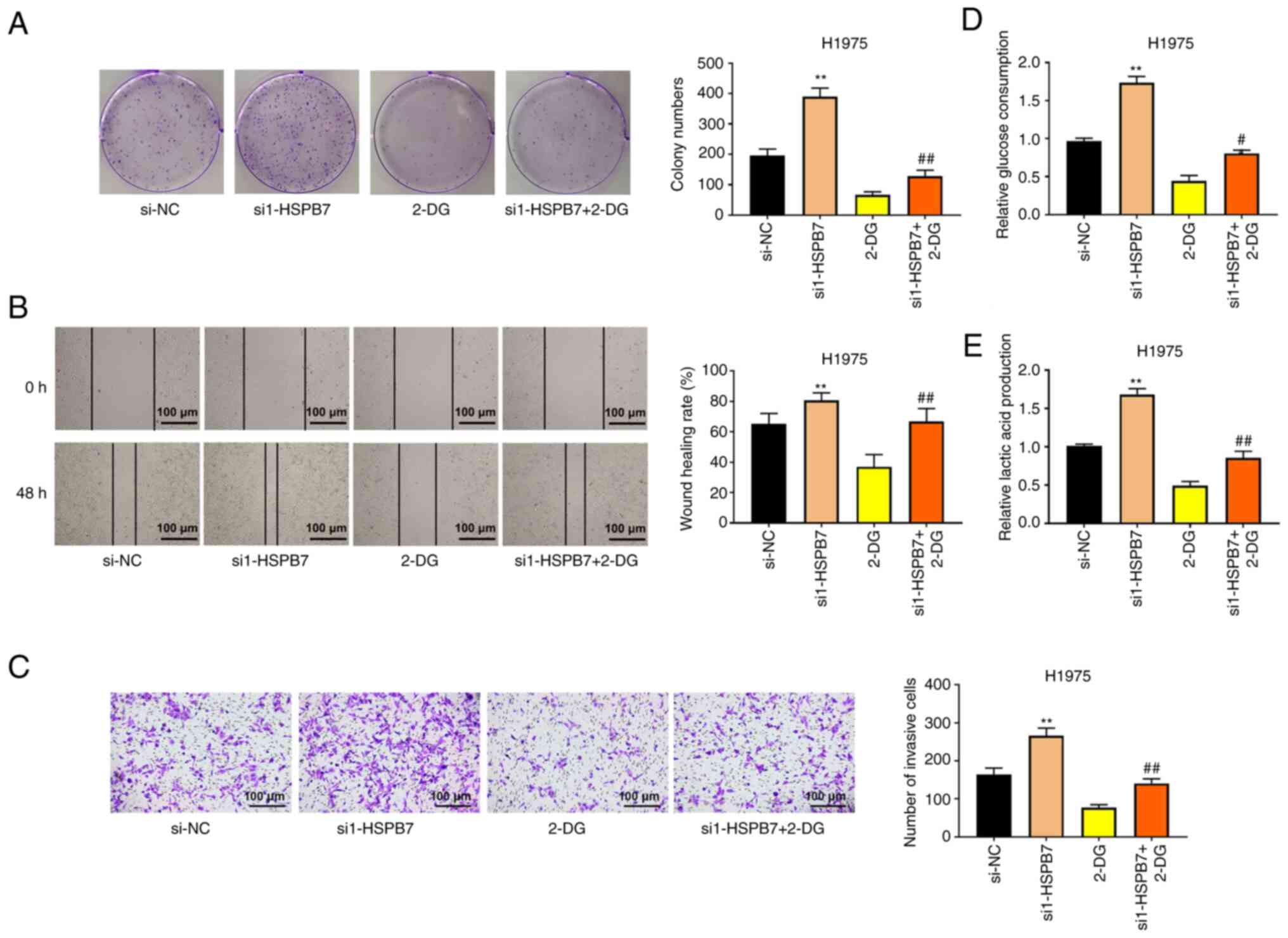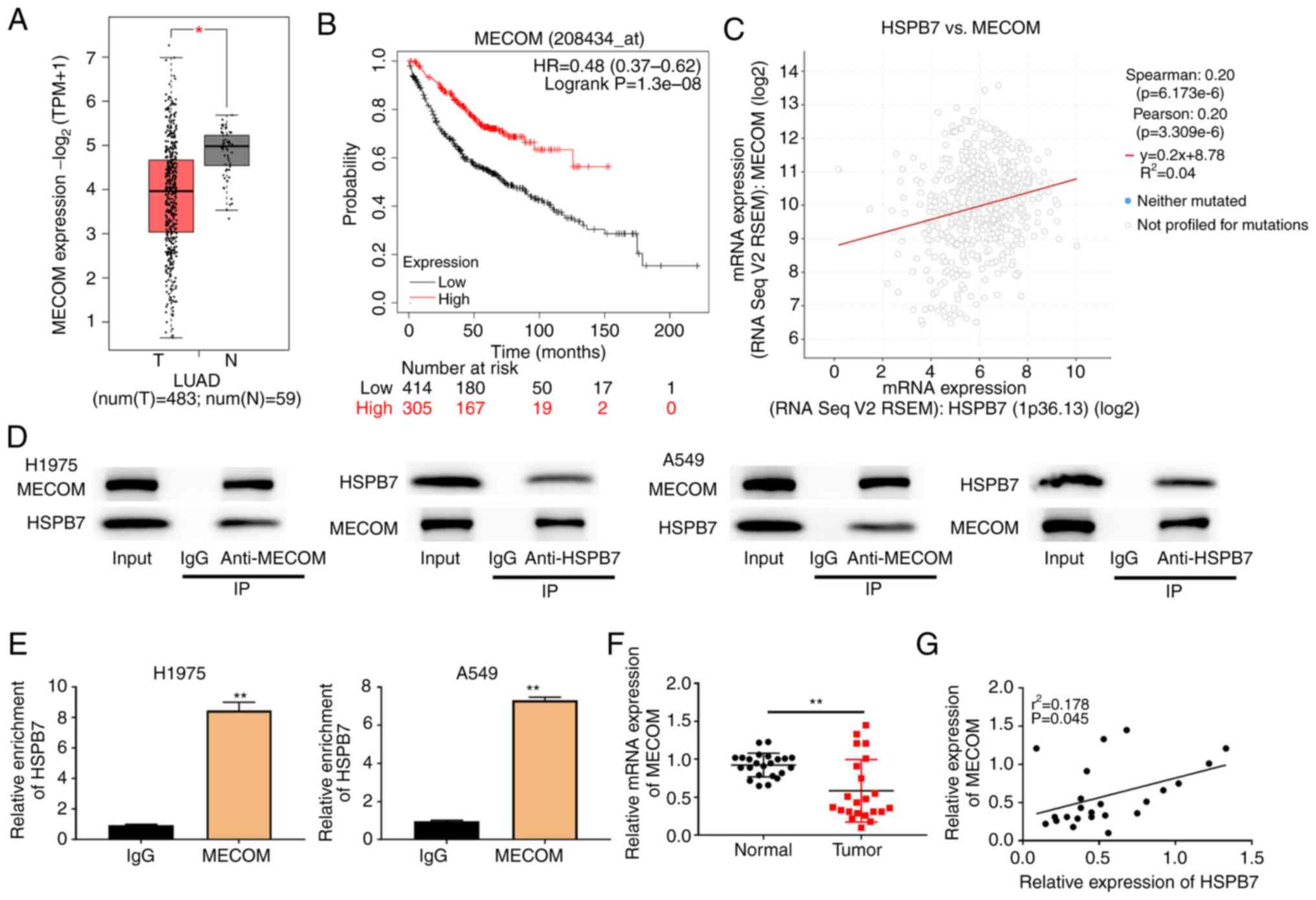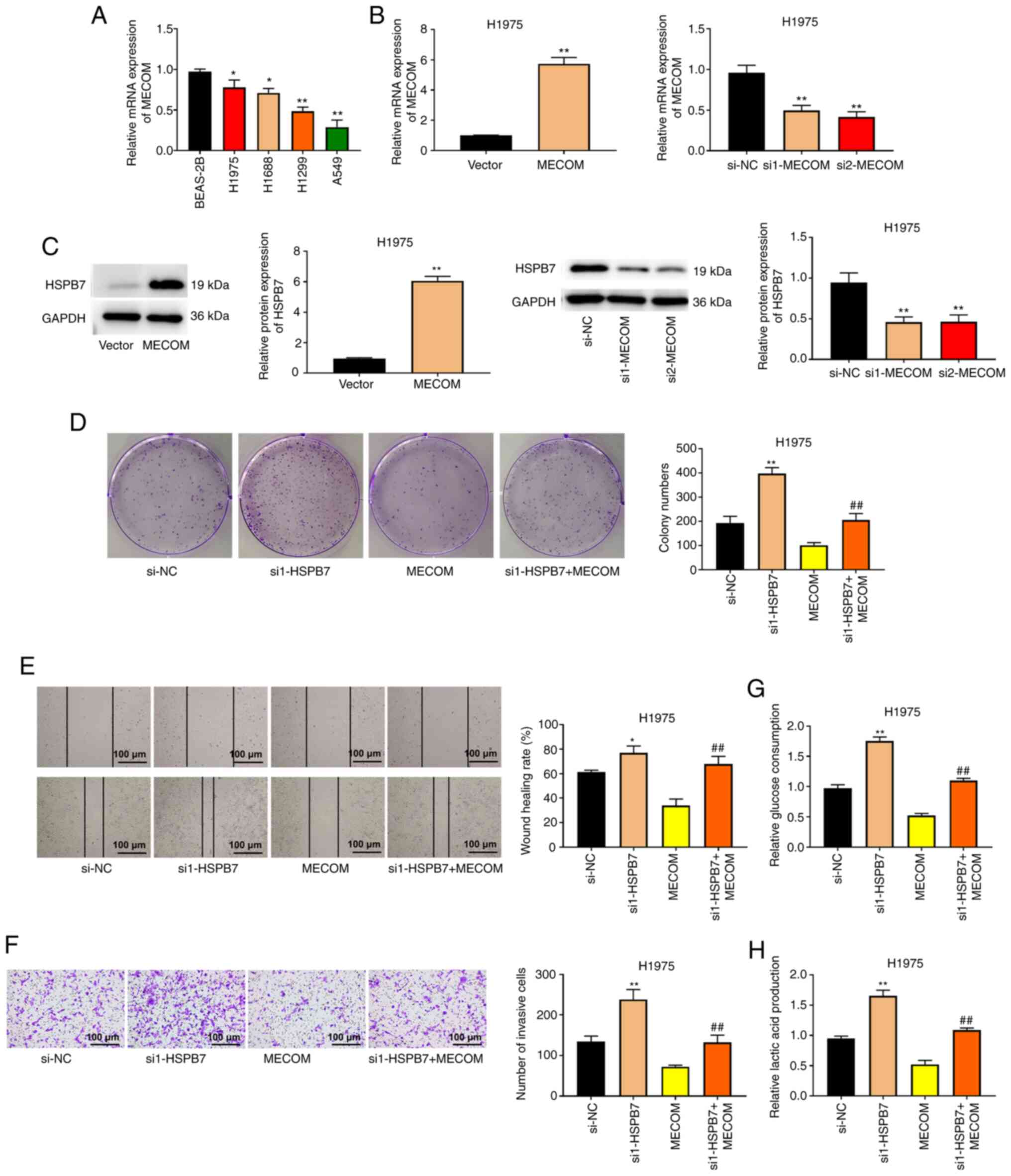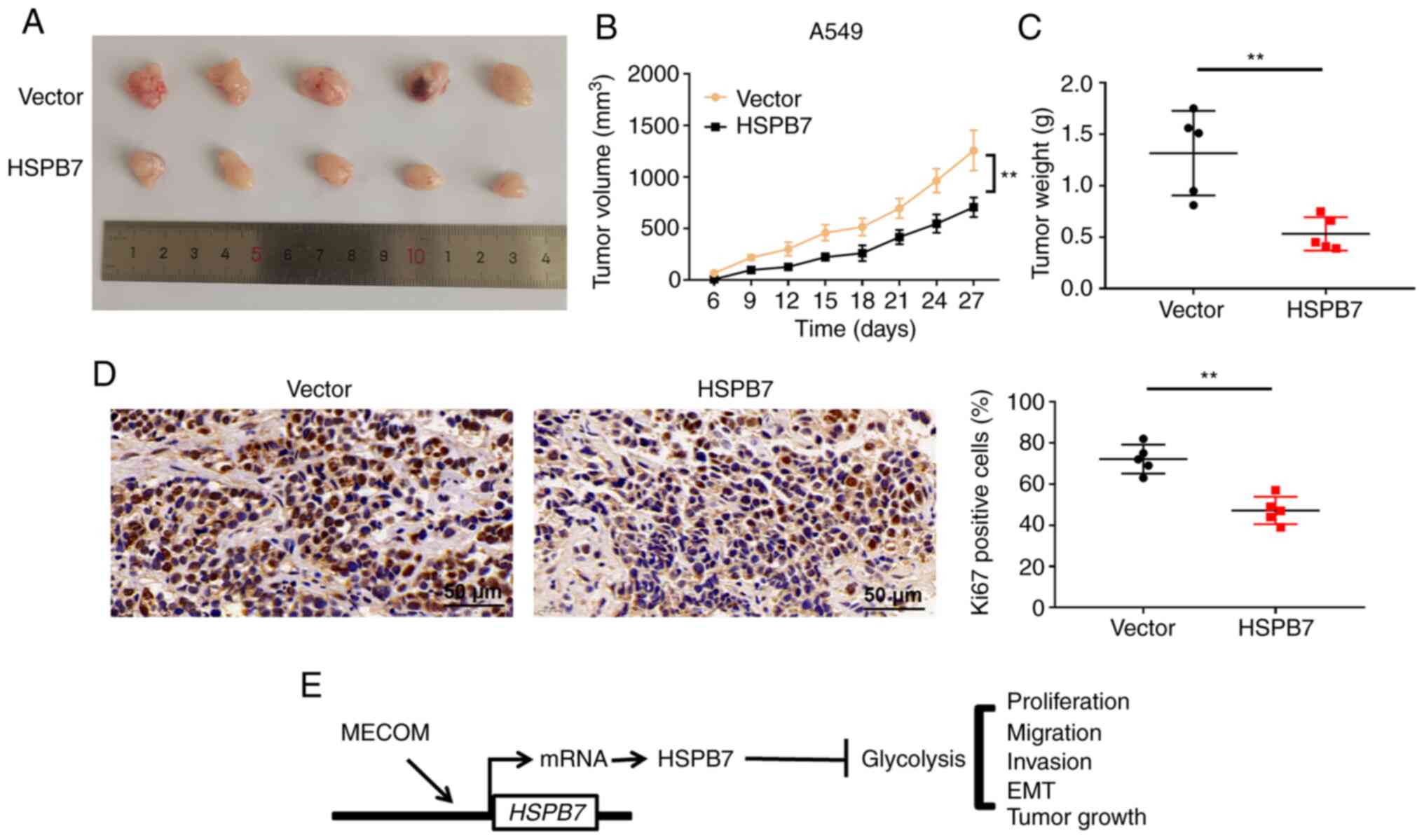|
1
|
Chen W, Zheng R, Baade PD, Zhang S, Zeng
H, Bray F, Jemal A, Yu XQ and He J: Cancer statistics in China,
2015. CA Cancer J Clin. 66:115–132. 2016. View Article : Google Scholar : PubMed/NCBI
|
|
2
|
Kerdidani D, Chouvardas P, Arjo AR,
Giopanou I, Ntaliarda G, Guo YA, Tsikitis M, Kazamias G, Potaris K,
Stathopoulos GT, et al: Wnt1 silences chemokine genes in dendritic
cells and induces adaptive immune resistance in lung
adenocarcinoma. Nat Commun. 10:14052019. View Article : Google Scholar : PubMed/NCBI
|
|
3
|
Zhao F, Zhao Z, Han Y, Li S, Liu C and Jia
K: Baicalin suppresses lung cancer growth phenotypes via
miR-340-5p/NET1 axis. Bioengineered. 12:1699–1707. 2021. View Article : Google Scholar : PubMed/NCBI
|
|
4
|
Hirsch FR, Scagliotti GV, Mulshine JL,
Kwon R, Curran WJ Jr, Wu YL and Paz-Ares L: Lung cancer: Current
therapies and new targeted treatments. Lancet. 389:299–311. 2017.
View Article : Google Scholar : PubMed/NCBI
|
|
5
|
Liu Z, Sun D, Zhu Q and Liu X: The
screening of immune-related biomarkers for prognosis of lung
adenocarcinoma. Bioengineered. 12:1273–1285. 2021. View Article : Google Scholar : PubMed/NCBI
|
|
6
|
Gettinger S and Lynch T: A decade of
advances in treatment for advanced non-small cell lung cancer. Clin
Chest Med. 32:839–851. 2011. View Article : Google Scholar : PubMed/NCBI
|
|
7
|
Wang X, Shi B, Zhao Y, Lu Q, Fei X, Lu C,
Li C and Chen H: HKDC1 promotes the tumorigenesis and glycolysis in
lung adenocarcinoma via regulating AMPK/mTOR signaling pathway.
Cancer Cell Int. 20:4502020. View Article : Google Scholar : PubMed/NCBI
|
|
8
|
Pagliarone AC, Castañeda ED, Santana JPP,
de Oliveira CAB, Robeldo TA, Teixeira FR and Borra RC:
Mitochondrial heat shock protein mortalin as potential target for
therapies based on oxidative stress. Photodiagnosis Photodyn Ther.
34:1022562021. View Article : Google Scholar : PubMed/NCBI
|
|
9
|
Henstridge DC, Whitham M and Febbraio MA:
Chaperoning to the metabolic party: The emerging therapeutic role
of heat-shock proteins in obesity and type 2 diabetes. Mol Metab.
3:781–793. 2014. View Article : Google Scholar : PubMed/NCBI
|
|
10
|
Mymrikov EV, Riedl M, Peters C, Weinkauf
S, Haslbeck M and Buchner J: Regulation of small heat-shock
proteins by hetero-oligomer formation. J Biol Chem. 295:158–169.
2020. View Article : Google Scholar : PubMed/NCBI
|
|
11
|
Muranova LK, Shatov VM, Bukach OV and
Gusev NB: Cardio-vascular heat shock protein (cvHsp, HspB7), an
unusual representative of small heat shock protein family.
Biochemistry (Mosc). 86 (Suppl 1):S1–S11. 2021. View Article : Google Scholar : PubMed/NCBI
|
|
12
|
Wu T, Mu Y, Bogomolovas J, Fang X, Veevers
J, Nowak RB, Pappas CT, Gregorio CC, Evans SM, Fowler VM and Chen
J: HSPB7 is indispensable for heart development by modulating actin
filament assembly. Proc Natl Acad Sci USA. 114:11956–11961. 2017.
View Article : Google Scholar : PubMed/NCBI
|
|
13
|
Juo LY, Liao WC, Shih YL, Yang BY, Liu AB
and Yan YT: HSPB7 interacts with dimerized FLNC and its absence
results in progressive myopathy in skeletal muscles. J Cell Sci.
129:1661–1670. 2016.PubMed/NCBI
|
|
14
|
Liu CC, Chou KT, Hsu JW, Lin JH, Hsu TW,
Yen DH, Hung SC and Hsu HS: High metabolic rate and stem cell
characteristics of esophageal cancer stem-like cells depend on the
Hsp27-AKT-HK2 pathway. Int J Cancer. 145:2144–2156. 2019.
View Article : Google Scholar : PubMed/NCBI
|
|
15
|
Liu S, Yan B, Lai W, Chen L, Xiao D, Xi S,
Jiang Y, Dong X, An J, Chen X, et al: As a novel p53 direct target,
bidirectional gene HspB2/αB-crystallin regulates the ROS level and
Warburg effect. Biochim Biophys Acta. 7:592–603. 2014. View Article : Google Scholar : PubMed/NCBI
|
|
16
|
Naderi A: SRARP and HSPB7 are
epigenetically regulated gene pairs that function as tumor
suppressors and predict clinical outcome in malignancies. Mol
Oncol. 12:724–755. 2018. View Article : Google Scholar : PubMed/NCBI
|
|
17
|
Lin J, Deng Z, Tanikawa C, Shuin T, Miki
T, Matsuda K and Nakamura Y: Downregulation of the tumor suppressor
HSPB7, involved in the p53 pathway, in renal cell carcinoma by
hypermethylation. Int J Oncol. 44:1490–1498. 2014. View Article : Google Scholar : PubMed/NCBI
|
|
18
|
Liu J, Lichtenberg T, Hoadley KA, Poisson
LM, Lazar AJ, Cherniack AD, Kovatich AJ, Benz CC, Levine DA, Lee
AV, et al: An integrated TCGA pan-cancer clinical data resource to
drive high-quality survival outcome analytics. Cell.
173:400–416.e11. 2018. View Article : Google Scholar : PubMed/NCBI
|
|
19
|
Riaz SP, Horton M, Kang J, Mak V,
Lüchtenborg M and Møller H: Lung cancer incidence and survival in
England: An analysis by socioeconomic deprivation and urbanization.
J Thorac Oncol. 6:2005–2010. 2011. View Article : Google Scholar : PubMed/NCBI
|
|
20
|
Livak KJ and Schmittgen TD: Analysis of
relative gene expression data using real-time quantitative PCR and
the 2(−Delta Delta C(T)) method. Methods. 25:402–408. 2001.
View Article : Google Scholar : PubMed/NCBI
|
|
21
|
Wu XT, Wang YH, Cai XY, Dong Y, Cui Q,
Zhou YN, Yang XW, Lu WF and Zhang M: RNF115 promotes lung
adenocarcinoma through Wnt/β-catenin pathway activation by
mediating APC ubiquitination. Cancer Metab. 9:72021. View Article : Google Scholar : PubMed/NCBI
|
|
22
|
Sutula TP and Fountain NB: 2DG and
glycolysis as therapeutic targets for status epilepticus. Epilepsy
Behav. 140:1091082023. View Article : Google Scholar : PubMed/NCBI
|
|
23
|
Wang L, Wang H, Wu B, Zhang C, Yu H, Li X,
Wang Q, Shi X, Fan C, Wang D, et al: Long noncoding RNA LINC00551
suppresses glycolysis and tumor progression by regulating
c-Myc-mediated PKM2 expression in lung adenocarcinoma. Onco Targets
Ther. 13:11459–11470. 2020. View Article : Google Scholar : PubMed/NCBI
|
|
24
|
Zhuo X, Chen L, Lai Z, Liu J, Li S, Hu A
and Lin Y: Protein phosphatase 1 regulatory subunit 3G (PPP1R3G)
correlates with poor prognosis and immune infiltration in lung
adenocarcinoma. Bioengineered. 12:8336–8346. 2021. View Article : Google Scholar : PubMed/NCBI
|
|
25
|
Rocco D, Della Gravara L, Battiloro C,
Maione P and Gridelli C: The treatment of advanced lung
adenocarcinoma with activating EGFR mutations. Expert Opin
Pharmacother. 22:2475–2482. 2021. View Article : Google Scholar : PubMed/NCBI
|
|
26
|
Lamberti G, Andrini E, Sisi M, Rizzo A,
Parisi C, Di Federico A, Gelsomino F and Ardizzoni A: Beyond EGFR,
ALK and ROS1: Current evidence and future perspectives on newly
targetable oncogenic drivers in lung adenocarcinoma. Crit Rev Oncol
Hematol. 156:1031192020. View Article : Google Scholar : PubMed/NCBI
|
|
27
|
Bezdenezhnykh N, Semesiuk N, Lykhova O,
Zhylchuk V and Kudryavets Y: Impact of stromal cell components of
tumor microenvironment on epithelial-mesenchymal transition in
breast cancer cells. Exp Oncol. 36:72–78. 2014.PubMed/NCBI
|
|
28
|
Cervantes-Arias A, Pang LY and Argyle DJ:
Epithelial-mesenchymal transition as a fundamental mechanism
underlying the cancer phenotype. Vet Comp Oncol. 11:169–184. 2013.
View Article : Google Scholar : PubMed/NCBI
|
|
29
|
Becker KF, Rosivatz E, Blechschmidt K,
Kremmer E, Sarbia M and Höfler H: Analysis of the E-cadherin
repressor Snail in primary human cancers. Cells Tissues Organs.
185:204–212. 2007. View Article : Google Scholar : PubMed/NCBI
|
|
30
|
Ganapathy-Kanniappan S and Geschwind JF:
Tumor glycolysis as a target for cancer therapy: Progress and
prospects. Mol Cancer. 12:1522013. View Article : Google Scholar : PubMed/NCBI
|
|
31
|
Zhou J, Zhang S, Chen Z, He Z, Xu Y and Li
Z: CircRNA-ENO1 promoted glycolysis and tumor progression in lung
adenocarcinoma through upregulating its host gene ENO1. Cell Death
Dis. 10:8852019. View Article : Google Scholar : PubMed/NCBI
|
|
32
|
Zhang L, Zhang Z and Yu Z: Identification
of a novel glycolysis-related gene signature for predicting
metastasis and survival in patients with lung adenocarcinoma. J
Transl Med. 17:4232019. View Article : Google Scholar : PubMed/NCBI
|
|
33
|
Zhou L, Li M, Yu X, Gao F and Li W:
Repression of hexokinases II-Mediated glycolysis contributes to
piperlongumine-induced tumor suppression in non-small cell lung
cancer cells. Int J Biol Sci. 15:826–837. 2019. View Article : Google Scholar : PubMed/NCBI
|
|
34
|
Ripperger T, Hofmann W, Koch JC,
Shirneshan K, Haase D, Wulf G, Issing PR, Karnebogen M, Schmidt G,
Auber B, et al: MDS1 and EVI1 complex locus (MECOM): A novel
candidate gene for hereditary hematological malignancies.
Haematologica. 103:e55–e58. 2018. View Article : Google Scholar : PubMed/NCBI
|
|
35
|
Bleu M, Mermet-Meillon F, Apfel V, Barys
L, Holzer L, Bachmann Salvy M, Lopes R, Amorim Monteiro Barbosa I,
Delmas C, Hinniger A, et al: PAX8 and MECOM are interaction
partners driving ovarian cancer. Nat Commun. 12:24422021.
View Article : Google Scholar : PubMed/NCBI
|
|
36
|
Germeshausen M, Ancliff P, Estrada J,
Metzler M, Ponstingl E, Rütschle H, Schwabe D, Scott RH, Unal S,
Wawer A, et al: MECOM-associated syndrome: A heterogeneous
inherited bone marrow failure syndrome with amegakaryocytic
thrombocytopenia. Blood Adv. 2:586–596. 2018. View Article : Google Scholar : PubMed/NCBI
|
|
37
|
Li M, Ren H, Zhang Y, Liu N, Fan M, Wang
K, Yang T, Chen M and Shi P: MECOM/PRDM3 and PRDM16 serve as
prognostic-related biomarkers and are correlated with immune cell
infiltration in lung adenocarcinoma. Front Oncol. 12:7726862022.
View Article : Google Scholar : PubMed/NCBI
|















